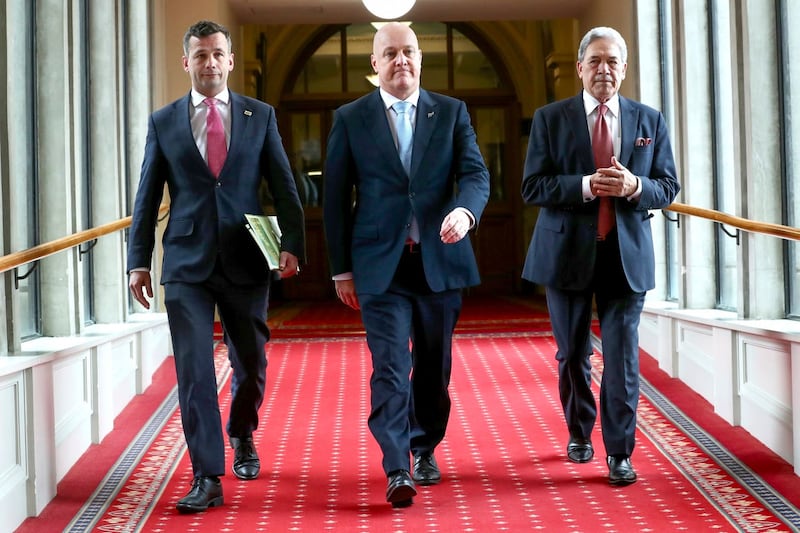New Zealand’s wait for a new government is over after three party leaders signed a coalition agreement on Friday.
The deal ended nearly six weeks of intense negotiations since a general election on October 14.
The deal will see Christopher Luxon serve as prime minister after his conservative National Party won 38% of the vote, the largest proportion of any party.
He thanked New Zealanders for their patience during the negotiations and said each party had made policy compromises to close the deal.

He said: “Our government will rebuild the economy to ease the cost of living and deliver tax relief to increase the prosperity of all New Zealanders.
“Our government will restore law and order and personal responsibility, so that Kiwis are safer in their own communities.”
The deputy prime minister role will be split between the other two leaders.
It will be held for the first 18 months of the election cycle by 78-year-old lawmaker Winston Peters, who leads the populist New Zealand First party, before he hands the baton for the remaining 18 months to David Seymour, leader of the libertarian ACT Party.
Mr Peters, who will also be foreign minister, said he did not foresee any changes to New Zealand’s current foreign policy on China.
New Zealand depends on China to buy many of its agricultural exports but has also expressed growing concern about China’s increased assertiveness in the Pacific.
Mr Seymour, who will take on the newly created role of regulation minister, said the country had been going in the wrong direction under the previous liberal government, with prices and crime rising and society becoming too divided.
“We must now draw a line under that and work to ensure New Zealanders have hope that a government can, indeed, deliver better public services and return for their hard-earned taxes,” he said.
The leaders agreed to make cuts to the public service and train 500 more police within two years.
They also agreed to change the mandate of the nation’s Reserve Bank, so it focuses solely on keeping inflation low rather than its current dual order to keep low inflation while maintaining maximum employment.








